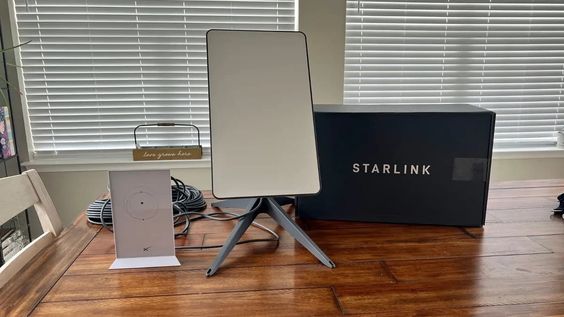In a move that underscores the complexities of global technology integration, the Central African nation of Cameroon has emerged as the latest battleground in the ongoing saga of Starlink, the satellite Internet venture owned by tech titan Elon Musk’s SpaceX. Reports have surfaced indicating that Cameroonian authorities have taken decisive action against Starlink by implementing a ban on its importation into the country. This bold step, reportedly initiated by the Director General of Cameroon Customs, Fongod Edwin Nuvaga, represents a significant development in the realm of both national security and fair market competition.
The crux of Cameroon’s concerns seems to revolve around the unregulated proliferation of Starlink’s ultra-fast Internet access equipment, which, according to reports from Betatinz, has been making its way into the country, evading the oversight of the Telecommunications Regulatory Agency (ART). This loophole in regulatory control has prompted authorities to take swift action, with border confiscations being just the tip of the iceberg.
Minister Minette Libom Li Likeng has echoed these apprehensions, emphasizing the potential security threats posed by Starlink’s unlicensed operations within Cameroon’s borders. The confluence of national security interests and fair market practices has propelled the Cameroonian government into action, as it seeks to assert control over the influx of Starlink equipment and address the regulatory vacuum that has allowed it to flourish unchecked.

Cameroon’s Regulatory law: Starlink’s African Odyssey
However, Cameroon’s stance is not an isolated incident in the larger narrative of Starlink’s African expansion. Across the continent, Starlink has been making significant strides in penetrating new markets, with successful ventures in countries like Benin, Nigeria, Rwanda, and more. Yet, for every success story, there seems to be a corresponding tale of regulatory hurdles and legal entanglements.
Take, for example, the recent approvals granted to Starlink in Ghana and Nigeria, where regulatory bodies have shown a willingness to embrace the promise of satellite Internet connectivity. These developments stand in stark contrast to the staunch opposition encountered in countries like Botswana and South Africa, where regulatory authorities have taken a hardline stance against Starlink’s unauthorized presence.
In South Africa, legal battles over trademark issues have led to the disconnection of hundreds of users, highlighting the precarious legal landscape that Starlink must navigate as it seeks to expand its global footprint. Similarly, in Botswana, the Communications Regulatory Authority has issued stern warnings against the importation and usage of Starlink devices, signaling a firm regulatory stance against unauthorized operations within its borders.
The regulatory landscape across Africa presents a complex tapestry of varying attitudes and approaches towards Starlink and similar ventures. While some countries embrace the promise of satellite Internet connectivity, others remain skeptical, citing concerns over regulatory compliance and fair market competition. In this legal labyrinth, fines and penalties loom large for those found flouting the rules, posing significant challenges for Starlink’s expansion ambitions.
As Starlink’s satellite constellation continues to dot the African skies, its journey through the continent serves as a microcosm of the broader challenges facing global technology companies in the 21st century. Navigating the regulatory maze, overcoming legal obstacles, and balancing national interests with global connectivity aspirations are just some of the hurdles that companies like Starlink must overcome as they seek to bring the world closer together through the power of satellite Internet technology.





